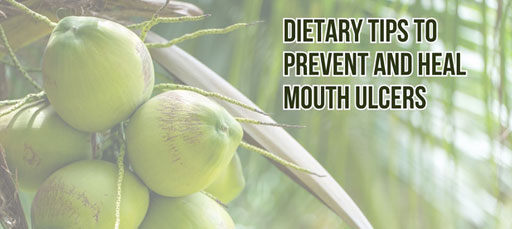
Dietary Tips to Prevent and Heal Mouth Ulcers
Are you fed up with those annoying, painful mouth ulcers? Small sores often become such a nuisance that eating, much less talking, hurts. While they sometimes heal by themselves, dietary changes are there that might help in preventing them and ensuring fast healing. Here are some valuable tips to keep those mouth ulcers at bay:
1. Reach for Vitamin-Rich Foods
Vitamin B12: Add to the list dairy products, eggs, fish, and fortified cereals. You can ensure enough levels of B12 from these.
Vitamin C: Add to the list citrus fruits, strawberries, and bell peppers. It not only promotes immunity, but also helps tissue repair.
Iron: Add leafy green vegetables, beans, and red meat to avoid anemia. Corresponding ulcers can be reduced by having these particular foods in the diet.
2. Limit Trigger Foods
Spicy and Acidic Foods: Such foods have the propensity to inflame present ulcers or develop new ones. Consume fewer hot sauces, citric fruits, and vinegar dressings.
Crunchy or Sharp Foods: Chips, nuts, and a few crackers might irritate the ulcers.
3. Take care of your mouth
Gentle brushing: Use a soft-bristled toothbrush. Avoid hurting sensitive tissue in the mouth.
Salt Water Gargle: Helps reduce pain and promotes faster healing. Mix one teaspoon of salt in warm water. Gargle a few times a day.
4. Keeping Yourself Well-Hydrated
Drink Plenty of Water: Keeping the body well-hydrated will keep the moisture levels in your mouth high, hence facilitating the recovery process.
5. Supplements
Zinc: Evidence exists that zinc supplements may benefit in decreasing the duration of these mouth ulcers. However, consult your doctor before taking any supplements.
6. Managing Stress
Relaxation Techniques: Stress decreases your immunity and exposes the sores in the mouth. Hence,Practice meditation, yoga, or any other form of relaxation techniques that you may like.
7. Food to Eat
Some individuals are sensitive to foods like cheese and other dairy products, which seem to give them mouth ulcers or worsen existing ones. You may need to start observing what you eat to see whether it will affect you.
8. Get Professional Help
Any ulcer that looks persistent or is very large should be looked at by a health professional.
Work these dietary tips and healthy habits into your routine, and you just might be able to prevent an outbreak of mouth ulcers or hasten the healing process.
Just remember that while these strategies may help in and of themselves, you really need to talk to a health professional for personalized advice and treatment.
Let those irritating mouth ulcers not get in your way! With these simple dietary changes, you will be able to keep them at bay to the barest minimum and reduce their discomfort so as to help set your oral health right and maintain general well-being.
Leave a Reply
Leave a Reply
Explore More Similar Posts
Explore More Blogs


Leave a Reply